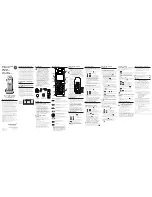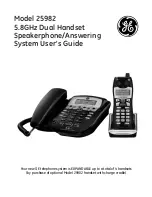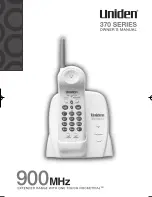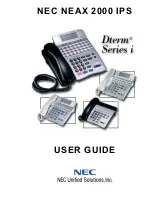
About the Key Expansion Module
9
IP Key Expansion Module (KEM) User Guide
If you want more line buttons programmed on your KEM or more information on using Hunt
groups, see your system administrator.
Programming memory buttons
The default for KEM memory buttons is blank. You can program memory buttons on the KEM to
your personal preference with internal and external autodial numbers or features to give you touch
dialing or feature activation. If you are operating KEM in enhanced mode, you can program
buttons for target line and Hunt groups as well. When you use enhanced mode, you can also
program duplicate buttons. For example, you can program more than one button for a particular
target line or external auto dialer. You can program names to correspond to external autodial
numbers. After you enter the names you can verify which names are programmed against the
external autodial buttons.
Your KEM will be most effective if you use it along with these features:
•
Camp-On (
≤°¤
)
•
Transfer (
≤‡‚
)
•
Priority Call (
≤fl·
)
Make sure that features are programmed on your Avaya 2002 IP Deskphone or Avaya 2004 IP
Deskphone or KEM by following the steps below for programming memory buttons.
Internal autodial
1. Press
≤•¤
.
2. Press a memory button.
3. Dial the extension number.
4. Press
OK
to store the number.
Or
Press
Quit
to exit the programming
sequence.
External autodial
1. Press
≤•⁄
.
2. Press a memory button.
3. Dial the external number.
4. Press
OK
to store the number.
Or
Press
Quit
to exit the program-
ming sequence.






























